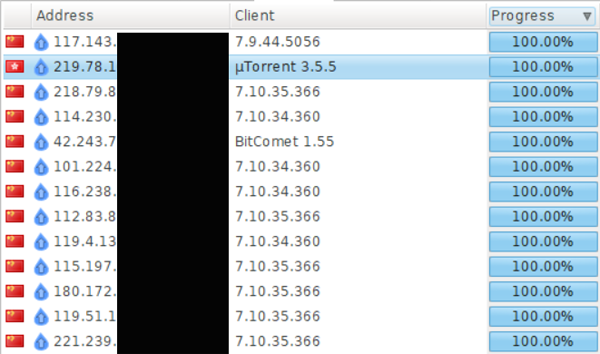LaLiga & Rights Alliance Win Dynamic Football Piracy Blocking Order
vendredi 26 avril 2019 à 11:18
Movies, TV shows, and music have all proven popular with online pirates for years but with fast Internet connections now widespread, streaming live television is on the increase.
This presents a unique problem for football leagues hoping to generate large revenues from fans keen to catch the big game on TV.
There are dozens of pirate sites available today willing to provide that content for free, a point not lost on Danish anti-piracy group Rights Alliance (RettighedsAlliancen). Figures provided by the group indicate that between February 2018 and February 2019, locals made 18 million visits to the most popular illegal live sports services.
To help counter this threat, Rights Alliance teamed up with Spanish top-tier football league LaLiga in legal action designed to prevent local Internet users from accessing the sites.
In a case filed on February 8, 2019, LaLiga demanded that local ISP Telenor should prevent its subscribers from accessing 10 sites (list below) that infringe its copyrights by showing live matches. LaLiga suggested DNS blocking as a possible method but Telenor asked for the whole injunction to be denied.
LaLiga stated that that previous rulings from the European Court of Justice found that the English Premier League owned copyright in its broadcasts, which included videos, music, highlights of previous matches and graphics.
When these are made available to the public, it is only the rightsholder that holds an exclusive license to do so. The same holds true when such broadcasts are made available to a “new audience” – i.e one that the rightsholder hadn’t initially taken into account, such as unauthorized streaming over the Internet of an otherwise terrestrial broadcast.
As is becoming typical in similar cases, the local court referenced other important rulings from the EU Court, including GS Media, BREIN v Ziggo and BREIN v Filmspeler, to determine if the protected works were being made available to the public in contravention of EU law.
Nine of the ‘pirate’ services listed in the complaint were ultimately deemed to be infringing due to them offering copyrighted works and generating revenue via advertising. The tenth, Spain-based RojaDirecta, requested more time to respond to LaLiga’s complaint, so the site will be dealt with at a later date.
On April 15, 2019, the Court of Frederiksberg handed down its order, which requires Telenor to block the listed sites using a “technical solution” such as DNS blocking. The provider is also required to block other domains that appear in future which facilitate access to the same sites. These will be advised by Rights Alliance under strict rules laid down by the Court.
Under the Danish ISP Code of Conduct, other major ISPs in Denmark will also implement the blocks against the sites in the complaint.
This is an important case in Denmark for both LaLiga and Rights Alliance, one that paves the way for blocking of unlicensed live sports and general TV portals in general.
LaLiga’s Audiovisual Director Melcior Soler welcomed the decision.
“Audiovisual Piracy is illegal and has great consequences, not only for us, but for the league and the future of the game, so we are very happy that RettighedsAlliancen has joined us in the fight. We know that Denmark is at the forefront of the development of digital tools to fight online piracy, and this is a big issue for us,” Soler said.
“We are now looking forward to seeing the effects of the blockings and hope that they can serve as an example for other countries, so that we can stand together in the fight against online piracy.”
The full order (supplied to TF by Rights Alliance) can be found here (pdf).
The site names, which are partially redacted in the order, are as follows:
- livetv*****
- tvron*****
- ronaldo7****
- kora-star****
- live.harleyquinnwidget****
- myfeed2all****
- stream2watch****
- jokerlivestream****
- kora-online****
Source: TF, for the latest info on copyright, file-sharing, torrent sites and more. We also have VPN reviews, discounts, offers and coupons.

 Plex is a multifunctional media server that allows users to easily organize all their entertainment in one place.
Plex is a multifunctional media server that allows users to easily organize all their entertainment in one place. 



 Anti-piracy firms often portray copyright infringers as thieves that must be stopped or eradicated.
Anti-piracy firms often portray copyright infringers as thieves that must be stopped or eradicated.